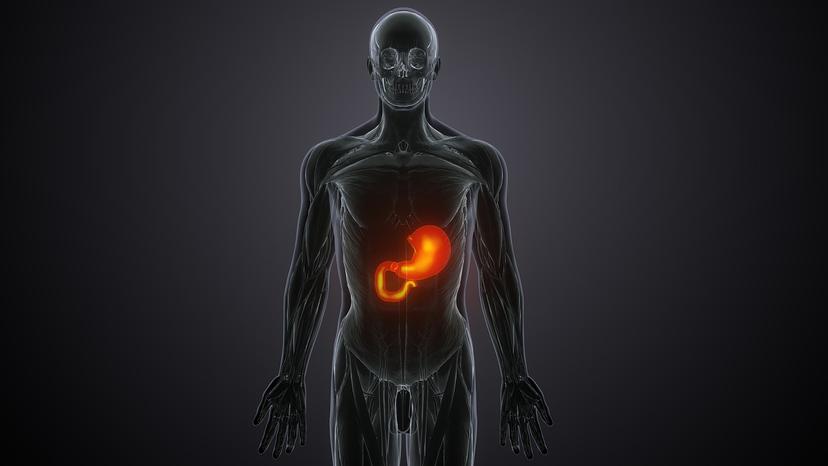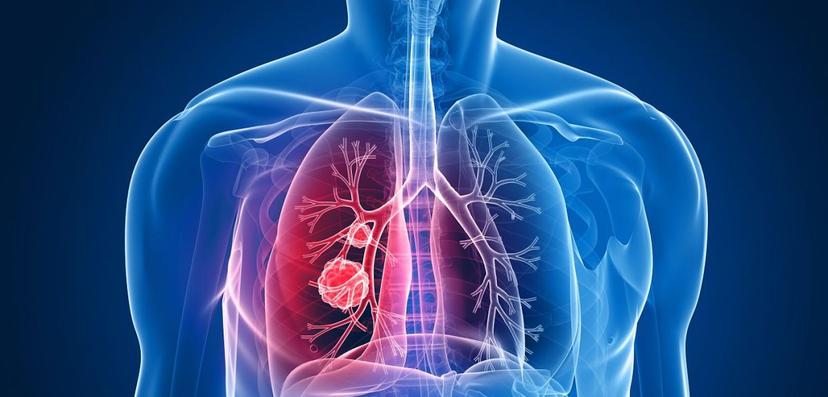
Esophageal Cancer Treatment in the UK: What Russian Patients Can Expect
01 Aug, 2024
 Healthtrip Team
Healthtrip TeamEsophageal cancer presents significant treatment challenges due to its complexity and the vital role the esophagus plays in digestion and swallowing. For Russian patients seeking advanced care, the United Kingdom is an attractive destination, offering top-notch medical facilities, highly specialized treatment options, and a multidisciplinary approach to care. This blog provides a detailed guide on what Russian patients can expect when pursuing esophageal cancer treatment in the UK, including information on leading hospitals, the treatment process, and practical considerations.
Most popular procedures in India
Esophageal Cancer
Esophageal cancer occurs when malignant cells form in the tissues of the esophagus, which is the tube that carries food from the mouth to the stomach. The most common types are squamous cell carcinoma and adenocarcinoma. Symptoms include:
- Dysphagia: Difficulty swallowing
- Odynophagia: Painful swallowing
- Persistent heartburn or indigestion
- Unexplained weight loss
- Chest pain or discomfort
Diagnosis typically involves endoscopic procedures, imaging tests (like CT scans or PET scans), and biopsies to determine the cancer’s stage and type.
Wellness Treatments
Give yourself the time to relax
Lowest Prices Guaranteed!

Lowest Prices Guaranteed!
A. Surgical Treatments
1. Esophagectomy
Esophagectomy is the primary surgical treatment for esophageal cancer, involving the removal of part or all of the esophagus. There are different types:
- Partial Esophagectomy: Targets tumors in the upper or middle esophagus by removing a portion of the esophagus and sometimes part of the stomach. The remaining sections are then reconnected.
- Total Esophagectomy: Used for tumors in the lower esophagus. This procedure involves removing the entire esophagus and usually reconstructing the digestive tract by connecting the stomach to the remaining part of the throat or esophagus.
- Minimally Invasive Esophagectomy: Also known as laparoscopic esophagectomy, this technique uses small incisions and specialized instruments to perform the surgery, which can lead to faster recovery and less postoperative pain compared to traditional open surgery.
2. Endoscopic Mucosal Resection (EMR)
EMR is a less invasive procedure used for early-stage esophageal cancer. It involves the use of an endoscope (a thin, flexible tube with a camera) to remove cancerous tissue from the esophagus lining. This method is suitable for tumors that have not penetrated deeper layers of the esophagus.
3. Endoscopic Submucosal Dissection (ESD)
ESD is similar to EMR but allows for the removal of larger areas of cancerous tissue. It is used for tumors that are confined to the mucosa (the innermost layer of the esophagus) but are too large for EMR. This technique involves a more extensive dissection of the mucosal layer to ensure complete removal of the cancerous cells.
B. Chemotherapy
A. Neoadjuvant Chemotherapy
Neoadjuvant chemotherapy is administered before surgical intervention to reduce the size of the tumor. The primary goal is to make the tumor smaller and easier to remove during surgery, which can lead to improved surgical outcomes and potentially allow for less extensive surgery. This approach is particularly advantageous for patients with large tumors or those whose cancer has spread locally, as it helps to manage the disease before definitive surgical treatment. By shrinking the tumor, neoadjuvant chemotherapy can increase the likelihood of a successful surgery and may improve the overall prognosis.
B. Adjuvant Chemotherapy
Adjuvant chemotherapy is provided after surgical procedures to target any residual cancer cells that might remain in the body. The primary objective of this treatment is to eliminate microscopic cancer cells that are not detectable but may cause recurrence if left untreated. By administering chemotherapy after surgery, the treatment aims to reduce the risk of cancer returning and improve long-term survival rates. Adjuvant chemotherapy is crucial for enhancing the effectiveness of surgery and reducing the chances of relapse.
C. Palliative Chemotherapy
For patients with advanced esophageal cancer, where surgical options may not be viable, palliative chemotherapy plays a critical role in managing symptoms and improving quality of life. This type of chemotherapy focuses on alleviating discomfort, shrinking tumors to relieve symptoms, and slowing the progression of the disease. While it is not intended to cure the cancer, palliative chemotherapy helps to control symptoms and enhance the patient’s comfort and well-being, making it a key component of supportive care in the advanced stages of cancer.
C. Radiotherapy
1. External Beam Radiotherapy
External beam radiotherapy is a widely used treatment for esophageal cancer, especially when surgery is not a feasible option or as an adjunctive therapy alongside chemotherapy. This technique involves directing high-energy radiation beams from outside the body to the cancerous area. The radiation targets and destroys cancer cells while aiming to minimize damage to surrounding healthy tissue. External beam radiotherapy can be effective in shrinking tumors, controlling local disease, and alleviating symptoms, making it a versatile treatment option for patients who are not candidates for surgery or require additional treatment to enhance the overall efficacy of their cancer care.
2. Stereotactic Radiotherapy
Stereotactic radiotherapy is an advanced and highly precise form of external radiotherapy. It delivers concentrated, high doses of radiation to the tumor with great accuracy, significantly reducing exposure to the surrounding healthy tissues. This technique is particularly beneficial for treating localized tumors and is often employed when conventional radiotherapy might be less effective. The precision of stereotactic radiotherapy allows for targeting tumors with minimal impact on nearby organs and tissues, making it a preferred choice for specific cases where precision is critical for treatment success.
3. Brachytherapy
Brachytherapy involves placing a radiation source directly inside or very close to the tumor. Although less commonly used for esophageal cancer compared to other types of cancer, it can be an option for certain cases, particularly for localized tumors. Brachytherapy can also be part of palliative care, aimed at relieving symptoms by delivering targeted radiation to the tumor site. This approach helps in managing symptoms and improving quality of life, especially when other treatment options are not viable or effective.
What Russian Patients Can Expect
1. Consultations and Diagnosis: Russian patients will begin with an initial consultation where specialists will review medical history, conduct necessary tests, and discuss treatment options. Advanced imaging and diagnostic procedures such as endoscopy, biopsies, and PET scans will be used to accurately diagnose the cancer and determine the most effective treatment plan.
2. Treatment Planning: Treatment plans are developed by a team of specialists, including oncologists, surgeons, radiologists, and nutritionists, ensuring a comprehensive approach. Treatment plans are tailored to the individual’s specific needs and may include a combination of surgery, chemotherapy, and radiation therapy.
3. Treatment and Follow-Up: Patients will have access to advanced treatment facilities, including the latest technology in surgical procedures, chemotherapy, and radiotherapy. The UK hospitals provide a range of support services, including psychological support, dietary counselling, and rehabilitation services. Regular follow-up appointments will be scheduled to monitor progress and manage any side effects or complications.
4. Logistics and Accommodation: Many hospitals offer language services or interpreters to assist Russian-speaking patients. Hospitals often provide information on accommodation options near the hospital, including patient lodgings and nearby hotels.
5. Costs and Insurance: Treatment costs can be significant, and patients should discuss financial arrangements and payment options with the hospital. Patients should check if their insurance covers international treatments and understand the process for claims.
For Russian patients facing esophageal cancer, the UK offers world-class treatment options and comprehensive care. From advanced diagnostic procedures to personalized treatment plans and supportive services, UK hospitals provide a robust approach to managing this challenging condition. By understanding what to expect and preparing accordingly, patients can navigate their treatment journey with confidence and access the high-quality care they need to combat esophageal cancer.
Most popular wellness packages
Related Blogs

Breast Cancer Treatment Options
Explore the various treatment options for breast cancer

Stomach Cancer Treatment Options: Surgery, Chemotherapy, and More
Explore the treatment options for stomach cancer with Healthtrip

Bone Cancer Treatment in the UK: Advanced Care for Patients from Russia
Bone cancer is a serious and challenging condition that requires

Stomach Cancer Treatment in the UK: Comprehensive Options for Patients from Russia
Stomach cancer, or gastric cancer, presents significant challenges and requires

Pancreatic Cancer Treatment Options in the UK: A Guide for Patients from Russia
Facing a diagnosis of pancreatic cancer can be overwhelming, especially

Advanced Lung Cancer Treatments in the UK: A Guide for Patients from Russia
Facing a diagnosis of advanced lung cancer can be daunting,










